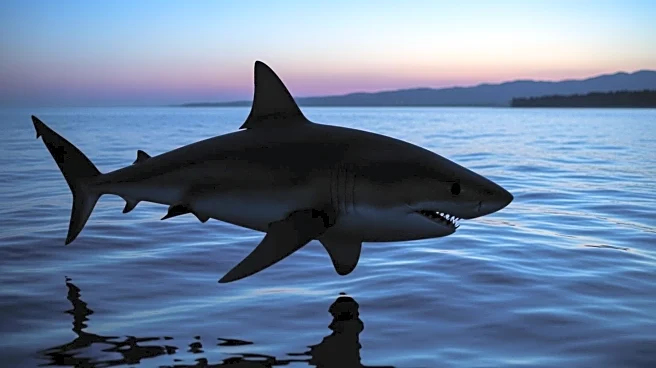What's Happening?
Barak Tzach, a father of four, was killed by dusky sharks while snorkeling off the coast of Israel in April. Dusky sharks, typically considered harmless to humans, attacked Tzach in a rare incident. Witnesses reported hearing Tzach's cries for help before
he was pulled underwater, and the water soon turned red. Scientists later confirmed that Tzach's death was the first known fatal attack by dusky sharks on a human. The study, published in the journal Ethology, suggested that external factors such as human error and ecological distortion contributed to the attack. Dusky sharks, despite their size, usually avoid humans and are common in the waters off Hadera due to the warm temperatures.
Why It's Important?
This incident highlights the potential dangers of human interaction with marine life, even species considered non-threatening. The attack underscores the importance of understanding ecological changes and human impacts on marine environments. The study suggests that human activities, such as feeding sharks, may alter their behavior, leading to increased risks. This event may prompt discussions on regulating human activities in marine environments to prevent similar occurrences. It also raises awareness about the need for conservation efforts to maintain ecological balance and protect both marine life and human safety.
What's Next?
Scientists recommend banning the public from feeding dusky sharks to prevent future attacks. This measure aims to eliminate the sharks' begging behavior, which may lead to aggressive actions. The study suggests that other measures could complement this approach but are less relevant. Authorities may consider implementing regulations to restrict human interactions with marine life, particularly in areas where sharks are common. Public awareness campaigns could be launched to educate people about the risks of feeding wildlife and the importance of preserving natural behaviors.
Beyond the Headlines
The incident raises ethical questions about human responsibility in wildlife interactions. It highlights the need for sustainable practices that respect marine ecosystems. Long-term shifts in shark behavior due to human influence could have broader implications for marine biodiversity. The event may lead to increased research on the impact of human activities on marine life and the development of strategies to mitigate negative effects.

















